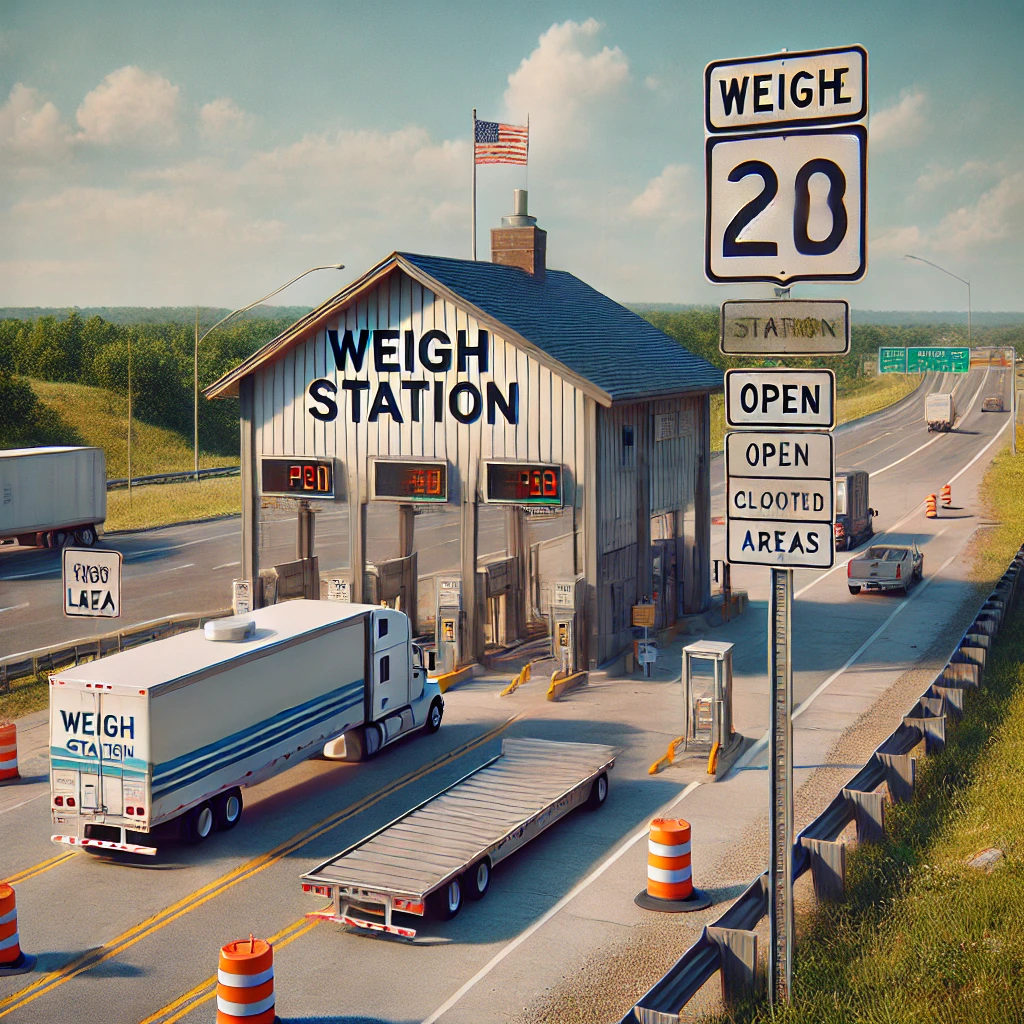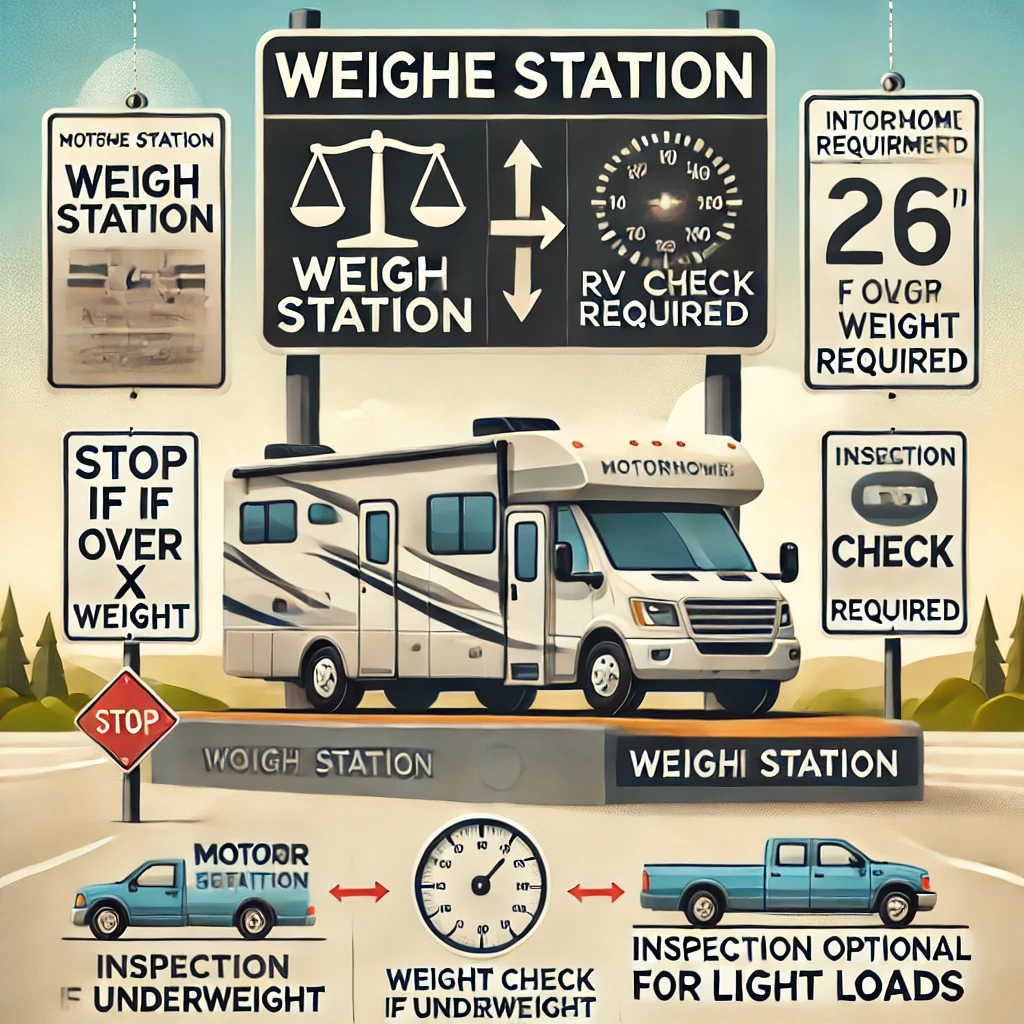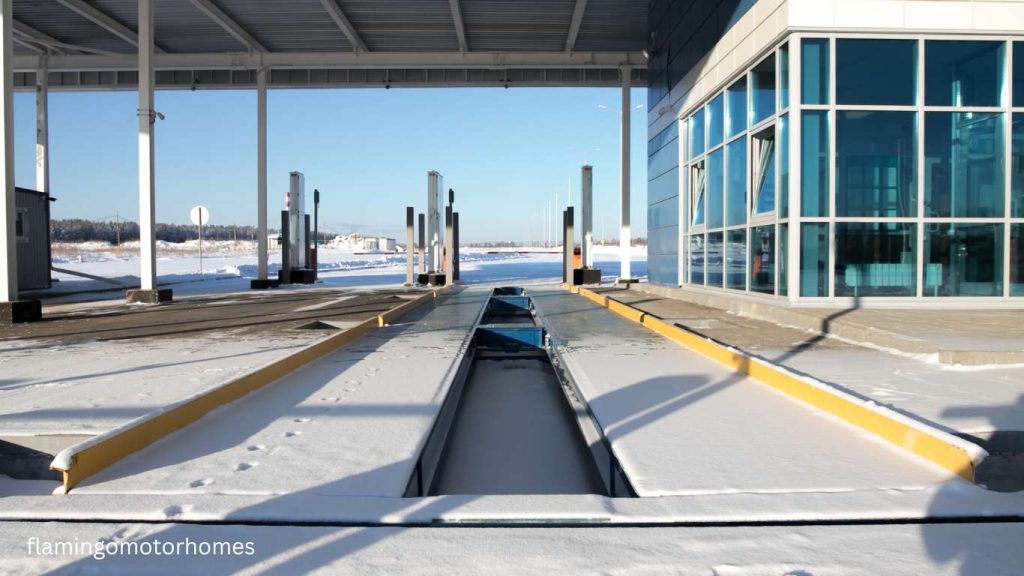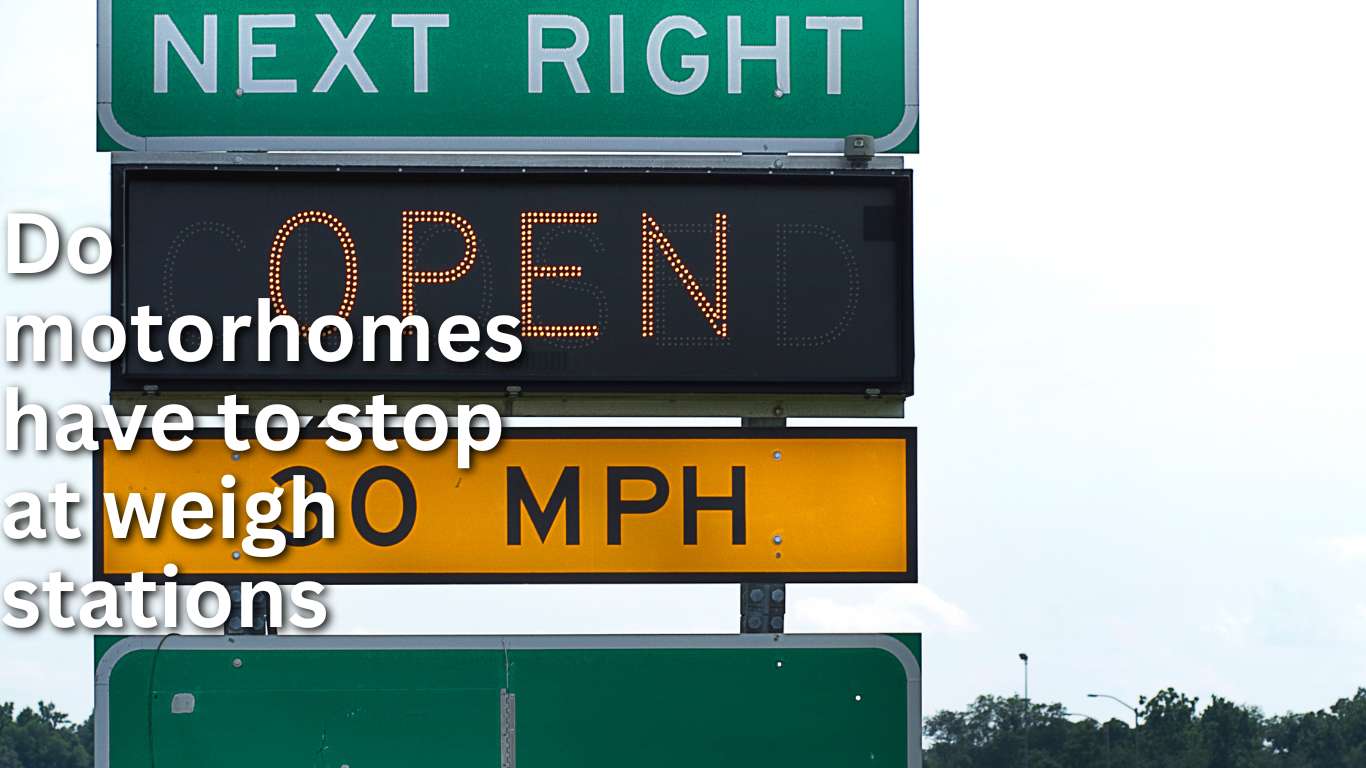Understanding Motorhome Weigh Station Requirements
Do Motorhomes really need to stop at weigh stations is when traveling in a motorhome, one common question is whether you need to stop at weigh stations along your route. Let’s dive into the factors determining whether a motorhome has to stop at a weigh station and what you need to know to stay compliant and safe on the road. Some stop due to uneven cleaning, washing or maintenance purpose
What Are Weigh Stations?
Weigh stations are checkpoints along highways where commercial and certain non-commercial vehicles are required to stop and have their weight checked. These stations are primarily used to ensure that vehicles aren’t exceeding the weight limits set by state or federal regulations, which helps to protect road infrastructure and promote road safety.

Do Motorhomes Have to Stop at Weigh Stations?
In most cases, motorhomes do not need to stop at weigh stations. Typically, weigh station requirements are directed toward commercial vehicles like semi-trucks, which are regulated by weight and cargo standards. However, the laws vary from state to state, and it’s essential to check each state’s regulations when planning a cross-country trip in your motorhome.
Exceptions and Considerations
- Weight Restrictions: Some states require motorhomes that exceed a certain weight (often around 10,000-26,000 pounds) to stop at weigh stations.
- Type of Motorhome: Class A motorhomes are more likely to approach weight limits due to their size, while Class B and Class C may be exempt in many states.
- Towing: If you are towing an additional vehicle or trailer with your motorhome, you may be required to stop if the combined weight exceeds state-specific limits.
Why Knowing Weight Limits Matters for Motorhome Owners
Staying within legal weight limits is crucial for your safety and to avoid fines. Overloaded motorhomes can experience brake, tire, and stability issues, leading to dangerous situations on the road. Understanding your motorhome’s weight and legal requirements keeps your journey smooth and hassle-free.
Key Takeaways on Motorhome Weigh Station Requirements
- Motorhomes are generally exempt from stopping at weigh stations unless they exceed certain weight limits.
- Each state has different rules, so it’s important to check regulations for each state on your route.
- Safety should always come first—keep your motorhome within weight limits for a safe and enjoyable journey.
While motorhomes usually don’t need to stop at weigh stations, understanding when and where you might need to is important for every RV enthusiast. Knowing your motorhome’s weight, type, and any state-specific requirements will help you avoid potential fines and ensure a safe travel experience.

What If I Don’t Want to Get Weighed? Understanding the Consequences
Why Avoiding Weigh Stations Isn’t Recommended
Skipping a weigh station in your motorhome might seem tempting if you’re in a hurry or unsure about the rules. However, bypassing a required weigh station can lead to significant consequences, including fines, penalties, and possible restrictions on your travel plans.
Possible Consequences of Avoiding Weigh Stations
Legal Penalties and Fines
Many states impose strict fines on drivers who bypass weigh stations, especially when the vehicle is over the state’s weight limits. Fines can vary but are often steep, potentially costing hundreds of dollars or more.
Legal Ramifications by State
Some states classify weigh station avoidance as a violation of traffic or highway regulations, leading to:
- Monetary Fines: Penalties can add up quickly, impacting your travel budget.
- Citations or Warnings: Repeat offenses may result in warnings or citations that could affect your driving record.

Potential for Detainment or Inspection
Bypassing a weigh station could also result in detainment if you’re flagged by authorities:
- Roadside Inspections: If authorities stop your motorhome, they may perform a roadside inspection to ensure you’re compliant with weight limits and safety standards.
- Detainment Until Compliance: Some states may hold you until you can arrange for proper weight reduction, adding delays and costs to your journey.
Tips for Motorhome Travelers
To avoid unnecessary fines or delays, follow these simple steps:
- Know Your Motorhome’s Weight: Before starting your trip, make sure you know the weight of your loaded motorhome, including any towed units.
- Check State Requirements: Each state’s Department of Transportation website provides weigh station rules for non-commercial vehicles like motorhomes.
- Plan Your Route: Identify states with mandatory weigh station stops and prepare to comply.
Key Takeaway: Compliance Is the Safest Choice
While skipping weigh stations might save time in the short term, the potential penalties, fines, and delays make compliance the best choice for motorhome travelers. Knowing your motorhome’s weight and stopping at required stations ensures a hassle-free and safe journey.
More information related to Weigh Station will readily available on Flamingomotorhomes.

